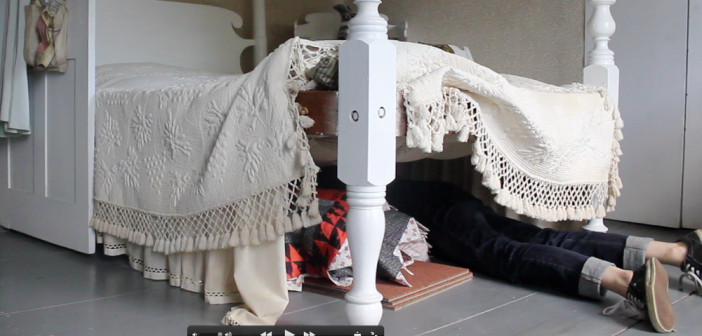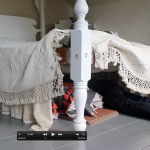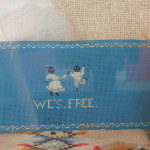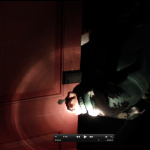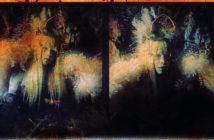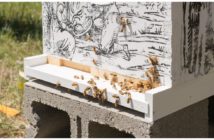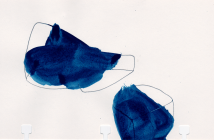Uttering the phrase "white guilt" is the beginning and the end to a conversation. I know, because I did it a couple of times this week, mostly in the presence of other white people… and I guess therein lies the sort of fundamental problem, a kind of solipsistic world in which the notion of race is conceived of through an internalized dialogue, either inside your head, or with people you register as "like you". This allowance, if anything, is a blaring reminder of privilege.
Recently, though, some comedians have explored the subject of white guilt, and it seems pretty fertile ground. The following clip from Season 8 of Curb Your Enthusiasm, I interpret as the playing out of a contemporary white-person paranoia (being overhead by black people while uttering the N-word to your white friends, no matter the context):
Or the following sketch from last fall on SNL, which centers around a painfully awkward, hilarious, and trans-historical moment when Abraham Lincoln, as played by Louis CK, fishes for gratitude from the black guy next to him at the bar.
https://youtu.be/Tbzfvef0aE0
In my first post, I ended up mulling over the idea of guilt and art, and given that I make work about history houses, dealing with race is inevitable. The subject of race and museum practices has been explored by academics and artists over the last two decades or so; notably, the work of Fred Wilson has powerfully drawn attention to how museum practices of archiving and display have either consciously or unwittingly reinforced racist beliefs or behaviors.
But I've personally felt a little lost in my own work in that I'm mostly interested in making videos about small, local, historical houses, run largely by volunteers, and held together on shoestring budgets. The socio-political situation is really the same, but I'm not dealing with a large anonymous institution. It feels very personal, and maybe this is just a question of access and privilege, but doesn't negate the fact that sometimes it just feels downright impolite to bring attention to certain things. It's a little bit like sitting at your parents' dinner table, gladly eating all their food, and lecturing them on GMOs and fair-trade.
The following video isn't a finished piece, it's a quick sketch, but it combines an edited down version of a conversation I had with the director and curator of a historical house in Maine, with close-up shots of Civil War pin-up pictures.
Nervous laughter runs throughout this conversation, as it circles around the subject of pornography, and then suddenly veers off towards racism. Humor is often times the way we manage to talk about things that are taboo, but is it the best way to talk about these things? What makes me anxious is how unstable jokes are, dependent upon the relationship between the speaker and the listener, and the environment the joke is told in, and also our own shifting moods. At times, during Season 8 of Curb Your Enthusiasm, when the Blacks come to live with Larry in his home, I wonder to what end the show plays up racial stereotypes; is it just for a laugh? And is that laugh sometimes racist? I've heard a friend describe Louis CK as just another annoying white dude, only to reconsider his feelings when he found out that Louis CK is actually half-Mexican; should that even matter?
David Foster Wallace in the following interview talks about a sort of dual nature inherent in humor in the U.S., derived from the fact that there is a history of sardonic comedy that is very political, but there is also a sense of irony pervasive in mass culture that is undeniably escapist.
In David Foster Wallace's words, "Humor is used to escape pain, but it can also be used to transfigure pain." I think that it is difficult, but manageable, to navigate race via humor on a one-on-one basis. It's incredibly daunting to do it via literature, film, or the visual arts and to potentially lose control of your intended meaning. However I guess the sort of self-evident, maybe even corny, statement that I've avoided saying up to this point is that you kind of have to, because it's better to make a crappy joke than to say nothing at all.
- Outtake from this house is just like your house, 2011.
- Needlepoint found in a history house in Maine.
- Still from upcoming video

